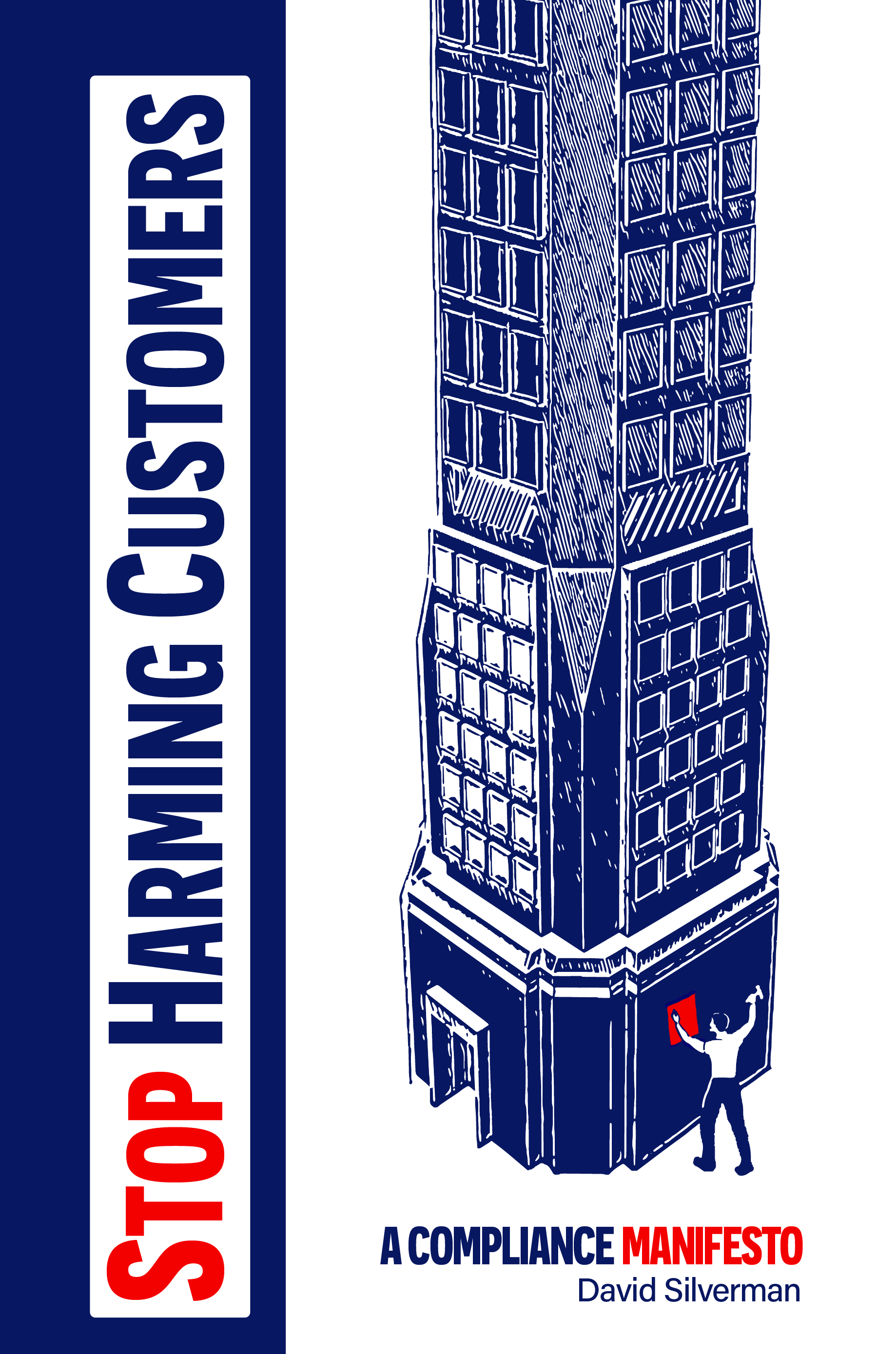
Summary
Since the year 2000, banks have been fined almost a third of a trillion dollars. Yet, every year billions more are imposed. Why? This book explains why banks break the law (it’s not just the money), explains the challenges facing Compliance functions, considers that the majority of financiers don’t want to do wrong, and puts forth a proposal to stop banks from harming customers.
The lessons in this book are applicable to any business where profit motives can conflict with customer benefit–in short, every business. (And if you’re interested in cryptocurrency, this book’s for you too!)
Praise
A Compliance book that answers both questions that are frequently asked in the Compliance world as well as the ones that you think don’t have an answer. The only Compliance book I know of that is both informative and entertaining, I recommend it unreservedly.
Juno Mayer-Senft, Legal and Compliance Consultant. Former Senior Compliance Leadership roles at JP Morgan, Bank of America and Merrill Lynch & Co
David Silverman's book on complex topics of fiscal compliance and risk is not your typical business book. He approaches his topic with the knowledge of an industry insider but with wit and humor, making this a truly readable and enjoyable book. Silverman knows "finance, like plumbing, is boring. Sooo boring. Put your head down on your desk and roll your eyes at even having to think about banking. Go ahead. It’s important. I’ll wait." He unveils the hidden side of finance that we all pay for and tells us "$339,976,074,213,....It’s the amount of penalties paid by financial institutions between 2000 and July 2022." Standing between the behemoth banks and the customer is "a thin line of Compliance and Legal people inside the system" who need a more knowledgeable public who is aware of the harm caused to them. This is a book that seeks to awaken that public.
Richard Greenwald, Dean of the College of Arts and Sciences and Professor of History at Fairfield University
Written from the perspective of an industry insider, David Silverman provides an insightful, highly readable and amusing summary of the complex regulatory landscape in the US. I enjoyed this book immensely, learned a few things and highly recommend it to both the general public as well as the regulatory community.
Mary Cvengros, Senior Fraud and Investigative Counsel United States Small Business Administration
Do no harm may be the axiom adopted by physicians globally, but the notion of Stop Harming Customers is equally compelling. Through important case studies, informed insight and guard rails for financial experts and compliance officers, you will learn how to skillfully manage emerging and ongoing cases, understand your fiduciary responsibilities with clarity and build additional guard rails for your enterprise to avoid not only facing fines and bad publicity, but undermining a fulfilling and important career. This is a superb addition to the literature.
Dr. Larry Barton, President and CEO, The American College of Financial Services (ret.)
Author Bio
David Silverman has been an executive at banks including JPMorgan Chase, Wells Fargo, Citi, Morgan Stanley and CIBC. He has seen firsthand how the largest financial institutions operate and worked with thousands of other Compliance officers who daily toil to protect customers. David has a BA in mathematics and computer science from Drew University and is working towards a masters in computer science from the University of Illinois at Urbana Champaign. He is the author of Typo, The Last American Typesetter.
Keywords
Compliance, management, risk, operational risk, reputation, fines, penalties, enforcement, violations, law, financial crime, white collar crime, fraud, regulations, regulators, banks, banking, finance, financial firm, Madoff, housing crisis, 2007 crisis, 2008 crisis, LIBOR, mortgage scandal, mortgage crisis, scandal, unfair, deceptive, money laundering, cryptocurrency, bitcoin, RCSA, control, assessment, testing, regulatory change, OCC, Comptroller of the Currency, Fed, CFPB, Federal Reserve, SEC, FINRA, CBOE, FDIC, Department of Justice, DOJ, Department of Treasury, FinCEN, FATF, Dodd-Frank, letter regulation, reg E, reg O, reg P, reg W, reg Z, reg GG, Gramm-Leach Bliley, Fair Credit, Fair Housing